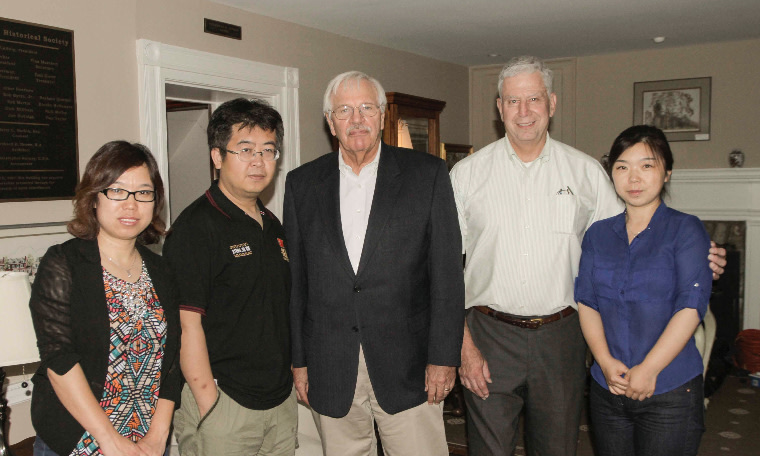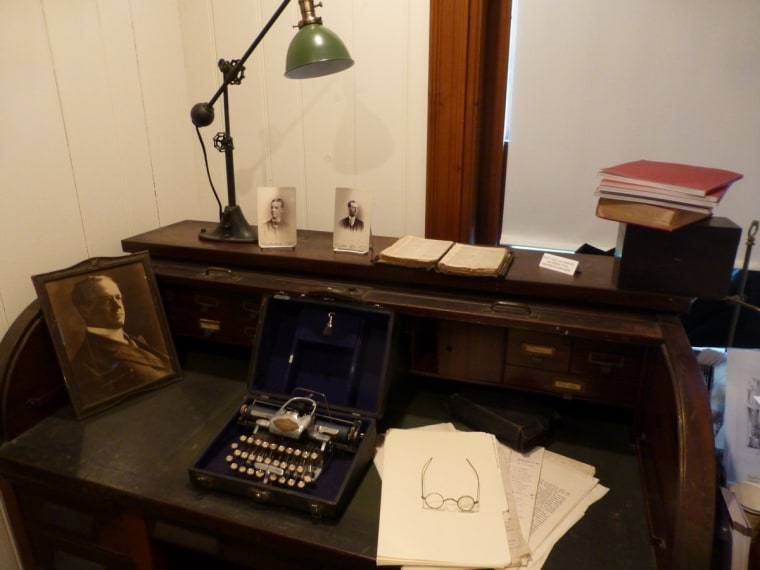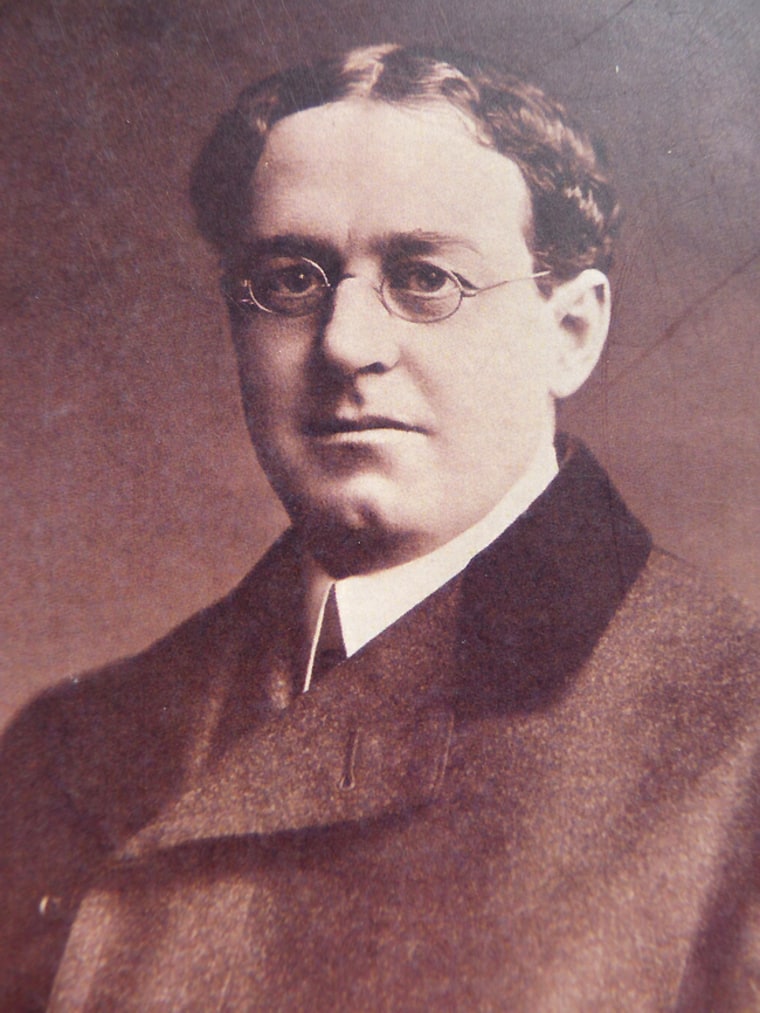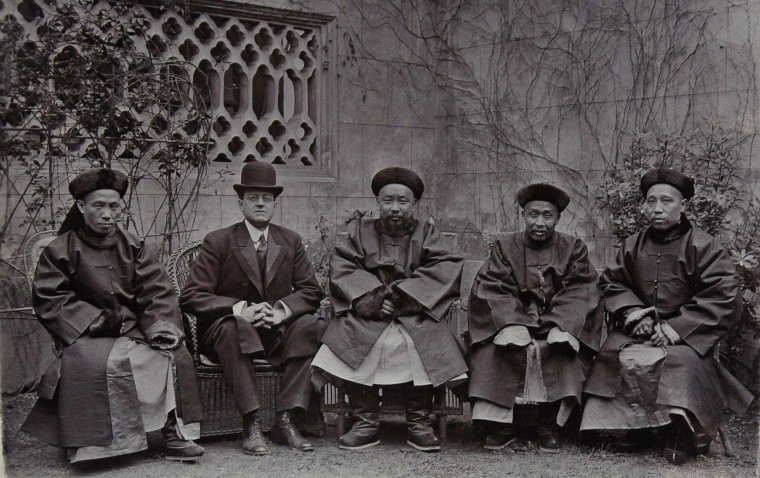These days, more than 10 million people visit it each year. But back in 1908, an American evangelical preacher named William Edgar Geil is believed to have become the first to walk the entire length of the Ming Dynasty portion of the Great Wall of China,
Geil’s feat -- traveling some 1,500 miles by foot -- has piqued the interest of Chinese Central Television, a state-run network in China. Late last month, a CCTV film crew traveled to Geil’s hometown of Doylestown, Pennsylvania, to chronicle his life for a television documentary on the Great Wall.
The sixth and final episode will feature Geil, said Stuart Abramson, president and CEO of the Doylestown Historical Society.
“This is an honor not only for Doylestown, but for our country,” Abramson told NBC News.
Geil’s story has also captured the imagination of Academy Award-winning Filmmaker Kieth Merrill, who the Chinese have invited as a creative consultant to work on a film with Geil as the overarching character.
“I find him remarkably courageous and curious and inventive in terms of what he did not only in China, but all around the world,” Merrill told NBC News.

The son of a cartographer, Geil was born on October 1, 1865, and grew up across the street from a Baptist church in Doylestown, just 28 miles north of Philadelphia. At an early age, he discovered an interest in religion, banking on his tallness, booming voice and strong oration to preach the gospel, Abramson said.
Geil was also a man consumed by wanderlust. Beginning in the early 1900s, he traveled to equatorial Africa, Israel, Syria, and China, among other places, studying indigenous cultures, and photographing and writing about the people he met along the way. According to Abramson, Geil authored 10 books, two of them on China, the explorer’s favorite country.
“There was definitely an attraction, and the attraction apparently was reciprocated,” Abramson said. “The Chinese people seemed to like him.”

Although Geil was a preacher, he was not there to proselytize, Abramson said. Rather, Geil was motivated by a natural inquisitiveness to explore, and traveling the Great Wall allowed him to better understand -- and record -- an important part of China’s culture and history.
His preaching did help pay for some of the travel expenses, but Geil had also married into wealth, Abramson found. His wife was Lucy Constance Emerson, a relative of Ralph Waldo Emerson.
Until recently, little was known about the life and times of Geil, who died in 1925 and had no children. That all changed when the heirs of Doylestown book collector Walter Gustafson, who died in 2005, donated a trove of Geil’s personal effects that Gustafson had acquired after Geil’s wife died in 1959. Thousands of photographs, journals, notes, diaries and unpublished portions of books were among the items given to the Doylestown Historical Society. Part of that collection has already been digitally catalogued.

But absent from that collection are any artifacts taken from the places Geil visited. Unlike other explorers of his time, who returned with objects of historical and cultural value, Geil made a practice of taking only photographs when he sojourned in a new land -- nothing more.
“I think that this is one of the things that endeared him to the people from lands that he visited,” Abramson said.
Like NBC Asian America on Facebook and follow us on Twitter.
